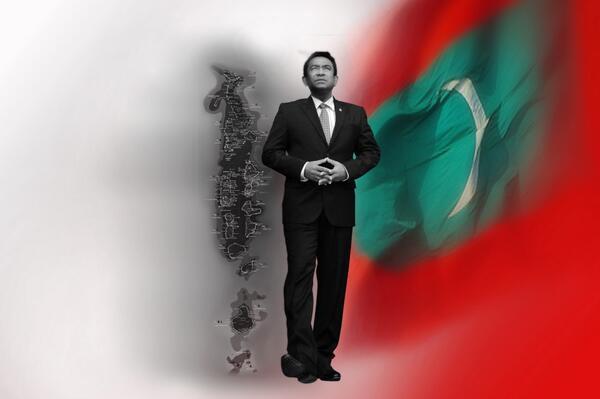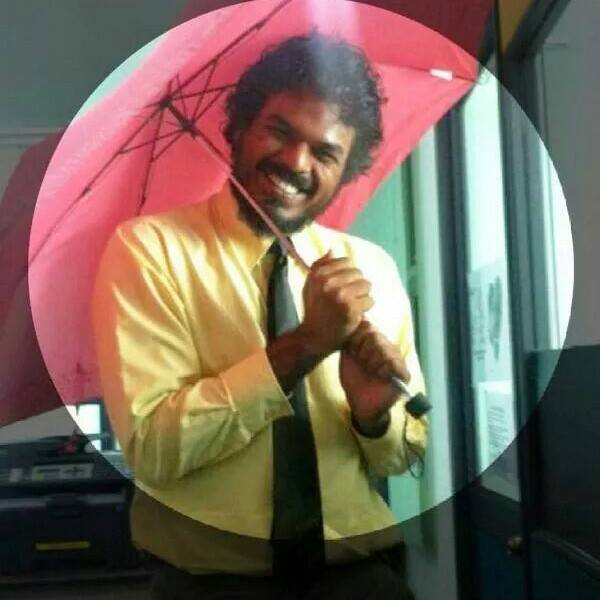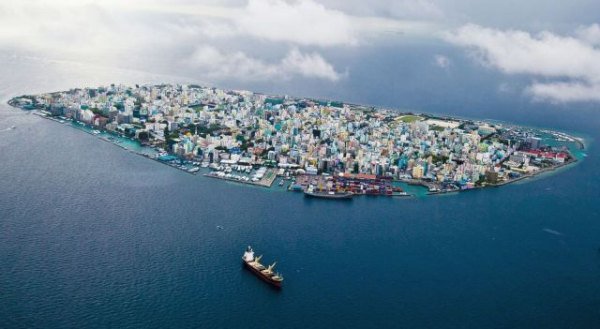
By Azra Naseem
There is a small island of about two square kilometres, called Male’, in the Indian Ocean. It is capital of the Maldives, a 1200 island archipelago inhabited by about 300,000 people known as Maldivians. If there was a psychiatric facility on this earth that could section a generalised population, Maldivians would be among the first to be locked away for life. Frequent electric shocks and, wherever possible, lobotomies, may be recommended.
The official story of Maldives starts with a sea monster that convinced a population of Buddhists, meditating in spectacular natural beauty, to give up their quest for inner peace in this life for the beautiful afterlife that Islam promises. That was back in 1153. Come the 21st Century and the Maldives has become a place where religion, ideology, greed, ignorance, astounding natural beauty and hope against all hope combine to form a life lived on a precarious balance between madness and civilisation.
It is very much a society organised top-down, and the top—where the creme de la creme of the strange have risen—is a good place to begin examining it from.
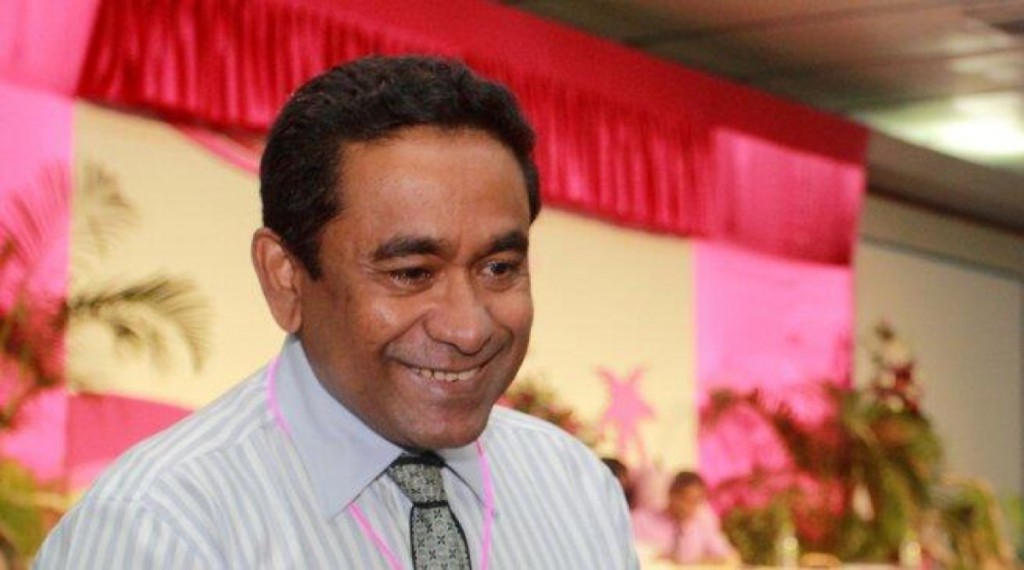
The present Maldives is ruled by a man who did not know how to smile until he became The Ruler. Now that he is president, he smiles as widely—and with the same disconcerting effect—as The Joker.
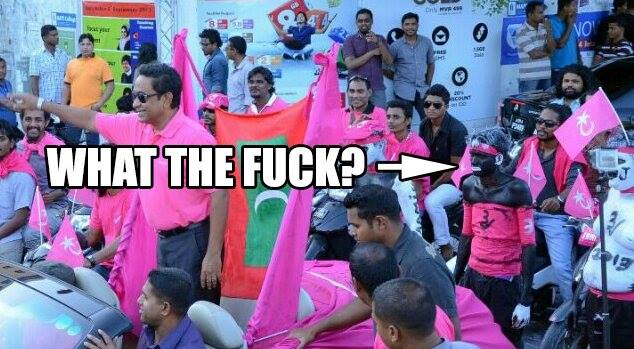
His 2013 presidency campaign and party colours are a deep pink for ‘Asuruma’ or the Four O’clock Flower, and his presidential victory convoy comprised a pink top-down convertible in which a man stood behind him jiggling ‘breasts’ made from painted coconut shells. His party is known as the Progressive Party of Maldives (or Pee-Pee-Em). This kind of ‘progressive’ would be hard to find anywhere else in the world.
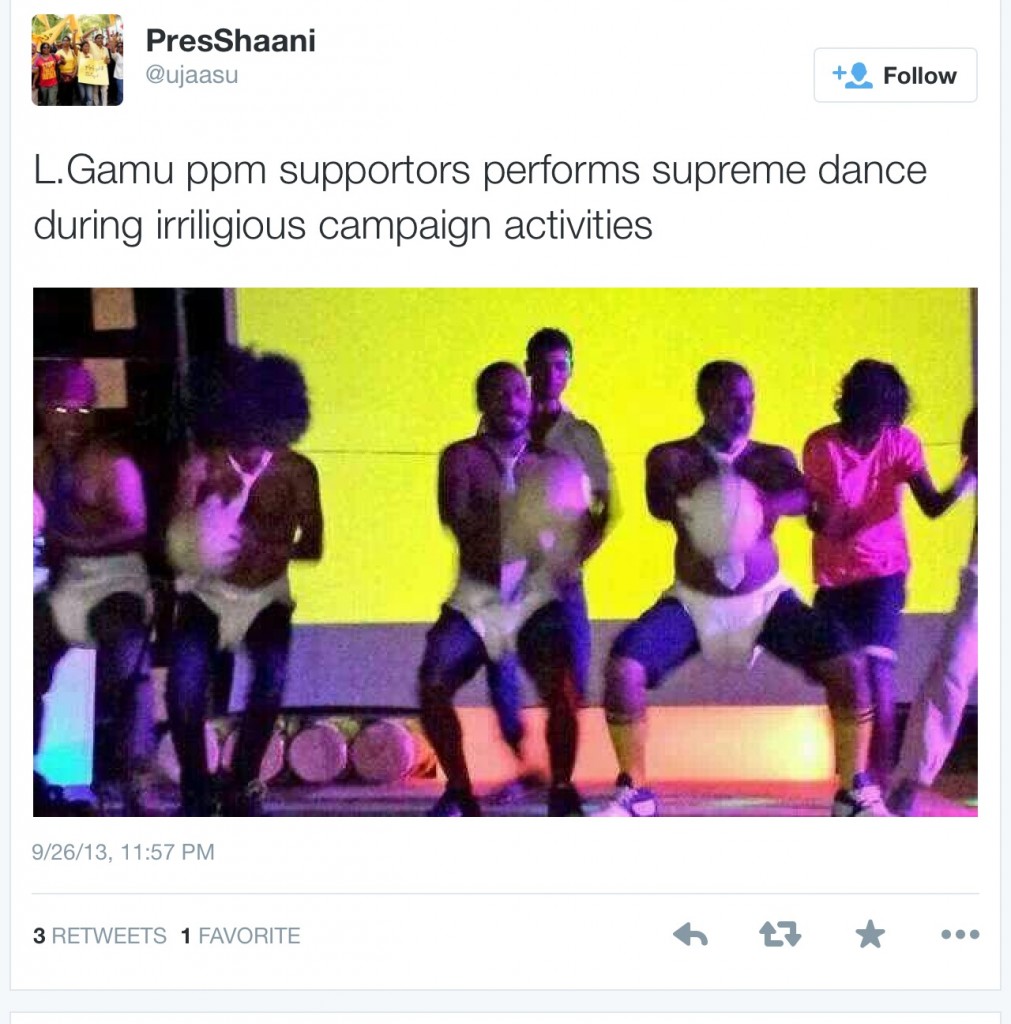
The confounding thing is that the people behind The Ruler are the same people who would also support the Islamic State. Even more astounding, if possible, is the fact that the ordinary Maldivians who proudly stand behind The Ruler in his pink convertible, Joker grin and coconut-titted cheer-leaders supporters are the same people who would hang (or preferably, these days, behead) someone like, say Conchita Wurst, ‘to protect OUR MALDIVIAN ISLAMIC PRINCIPLES!’. A man with coconut tits in a pink convertible hailing the new president is somehow ‘progressive’; Conchita is not.
In the hierarchy of life on this island, after the President come the security forces: the Maldives National Defence Force (MNDF) and the Maldives Police Service (MPS). There are some close resemblances and stark differences between the two men who lead the institutions. Mohamed Nazim, who heads the MNDF was a key player in the coup that was not a coup; Hussein Waheed who leads the MPS, meanwhile, slept through it all. Both men love adulation. Nazim is like The Wolf in Pulp Fiction—he fixes everything. He was called in to ‘fix’ democracy before it was broken on 7 February 2012; he fixed US-Maldives bilateral relations real good; he hooked Maldives up with China even as India looked on with her mouth open; he fixed the airport and the GMR saga, Nexbiz, IGMH, the transport sector; and he ‘fixed’ Minister Shakeela.
While Nazim is The Fixer, Hussein Waheed is The Waster. Policing in the Maldives has never been this dismal. It is as if Mr Waheed is sleeping through his job, like he slept through the coup. The less psychotic among the Maldivian population have been mourning, for 63 days now, the unexplained disappearance of one of its sanest citizens: Moyameehaa, Ahmed Rilwan (also known as Rizwan). The police, under Waheed have not answered a single question about his abduction in the two months that have gone past. Whatever arrests they have made, they have done reluctantly, and released with eagerness.
The MPS is a different kind of police force, with an approach to policing quite unique in this century. For instance, among the things it has been busy doing while ignoring all serious crime include: holding workshops all over the country talking to adolescents—or in their words ‘children of marriageable age’—about ‘being prepared’ [for what, it is not known]; ‘creating awareness about police work among pre-school children’; arresting and immediately releasing drug-delaers; ‘apprehending an individual possessed by six bottles of fish paste’; charging a man who committed an act of terror with ‘stealing a CCTV camera’ and letting him go straight afterwards; and lifting a man sleeping under a coconut tree back to safety under his own roof.
The Best of MPS (and the Maldives criminal justice system in general) came last week when the top dogs [Top Polis Ahmed Athif, Prosecutor General Muhuthaz Muhsin, Deputy Attorney General, a High Court judge and some businessman] went to Los Angeles to share their knowledge on [wait for this] ‘Using Intelligence to Assure Public Safety’—at the Oracle OpenWorld 2014. Of course, the entire saga was played out on social media, courtesy of polis Athif, who goes by @Hammettz
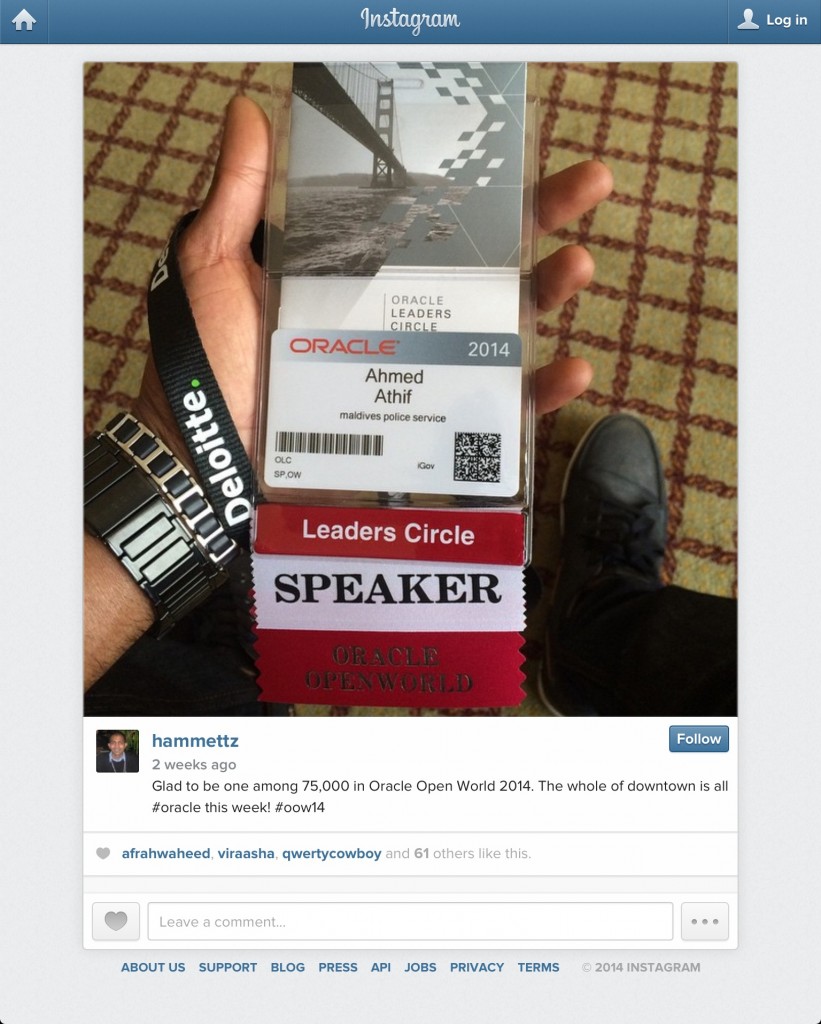
Intelligence was nowhere to be found as pictures soon emerged of The Boys hanging out some where totally surrounded by alcohol. Nothing wrong with this except that these Boys have made it their life’s work to jail for years the Maldivians who do the same thing back home on the island.

As for public safety, it was not long before The Boys—who went on an ‘LA road trip’ after an Aerosmith concert [seriously, who does that??]—were robbed of all their possessions, including their laptops and mobile phones, which they had left in the backseat of the car. Maldivian law enforcement abroad.
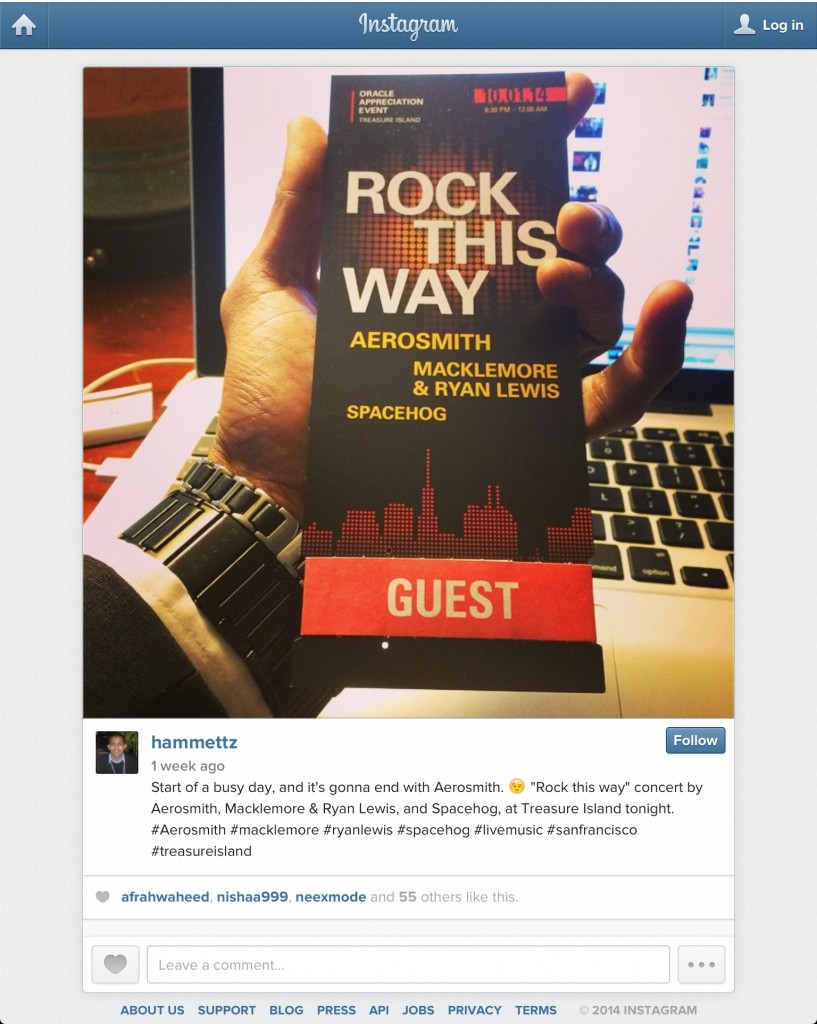
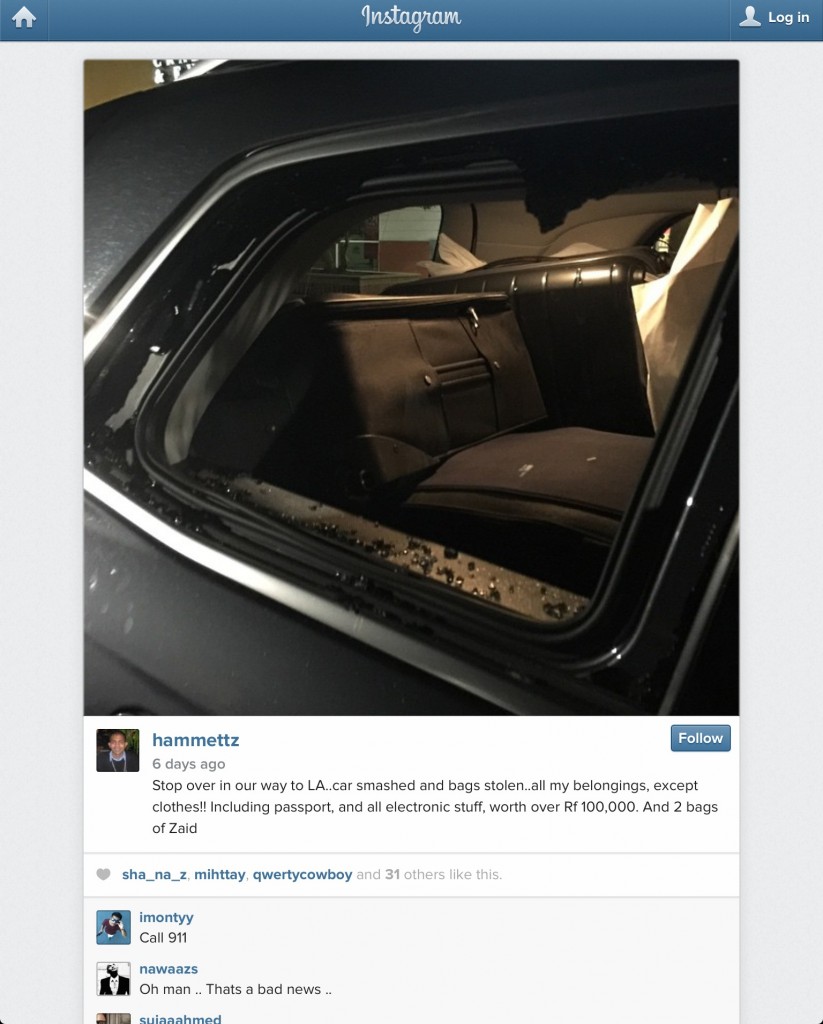
Through it all, CP Waheed travels the length and breadth of the archipelago strutting like a cock, expecting devotion and finely cooked chicken from pseudo Island Chiefs and Pee-Pee-Em supporters in their pink shirts [barely recognisable sans the coconut tits].
This is the cream of Male’s society today. Along with them come the MPs with their grossly inflated salaries equivalent to those in Sweden and their total refusal [except for a handful of MPs] to stand up for the people whom they are said to represent. Over 5000 Maldivian people signed a petition and submitted it to the Majlis asking it to seriously examine the police’s inability to investigate the abduction of Rilwan. The petition has been ignored. PPM MPs, in fact, obstructed any parliamentary oversight in the matter. The leader of PPM’s Parliamentary Group, Ahmed Nihan, has far more pressing matters to deal with, like the phenomenon of going grey overnight. Since the change which seems to have occurred a few full moons ago, he has ben unable to stop taking selfies, posing with an endless stream of other narcissistic members of the clan whose enormous egos [among other things] fill the computer screens of anyone on social media.
What is left to say then when we leave the cream that has curdled to top and come to the ordinary citizen? These people at the top, they represent the majority of Maldivians. 51 percent, if we must be specific. That 51 percent must be happy; they laugh along anyway. They clap in adulation and genuflect with glee. Of the remaining 49 percent a substantial number proudly declare themselves ‘colourless’/apolitical/disinterested/’citizens of good etiquette’. In other words, they won’t do a thing to change a thing.
That leaves a minuscule minority who, for being different among such madness, come to call themselves [or be called] insane; and live with the constant fear that any moment now they would be bundled on to a Maldivian Narrensciff that sails the ocean in the middle of the night, and be made to disappear—perhaps never to return.
